Every person knows that sleep deprivation in the first few weeks is a rite of passage to the beautiful life of parenthood. Some newborns like their sleep more than others, but in the first couple of weeks, no newborn will sleep through the night. It is biologically impossible because of how their sleep cycle works.
I’m not writing this post with the intention of giving every new parent the secret to getting their baby to sleep through the night. I am writing this post with the hopes of giving you a better understanding of why babies don’t sleep through the night. So at 3am when the baby won’t sleep, you will feel a little more compassion and a little less [insert any possible feeling you may have towards this tiny human who has rocked your world and has you awake at hours you haven’t seen since your early 20s].
How Sleep Cycles Work
Let’s start with you and your sleep cycle. Yes, YOU! The person you probably haven’t thought about in weeks. Give yourself a pat on the back because you’re doing an AMAZING job!
An Adult Sleep Cycle
As an adult, you have had many years to practice sleeping. You have [hopefully] done it every day since birth and you’ve gotten really good at it! Every night, you fall asleep for 90–120-minute chunks at a time, which are known as sleep cycles. I’ll spare you the science of every sleep cycle. I know you’re tired and probably don’t care one bit (I don’t blame you).
The import thing to know is that between every 90–120-minute sleep cycle, you wake up. You might not believe me, but it’s true! The thing is, you’ve gotten so good at sleeping that you wake up multiple times per night, but in the morning, you don’t even remember doing it. This is because you have had years of practice putting yourself back to sleep.
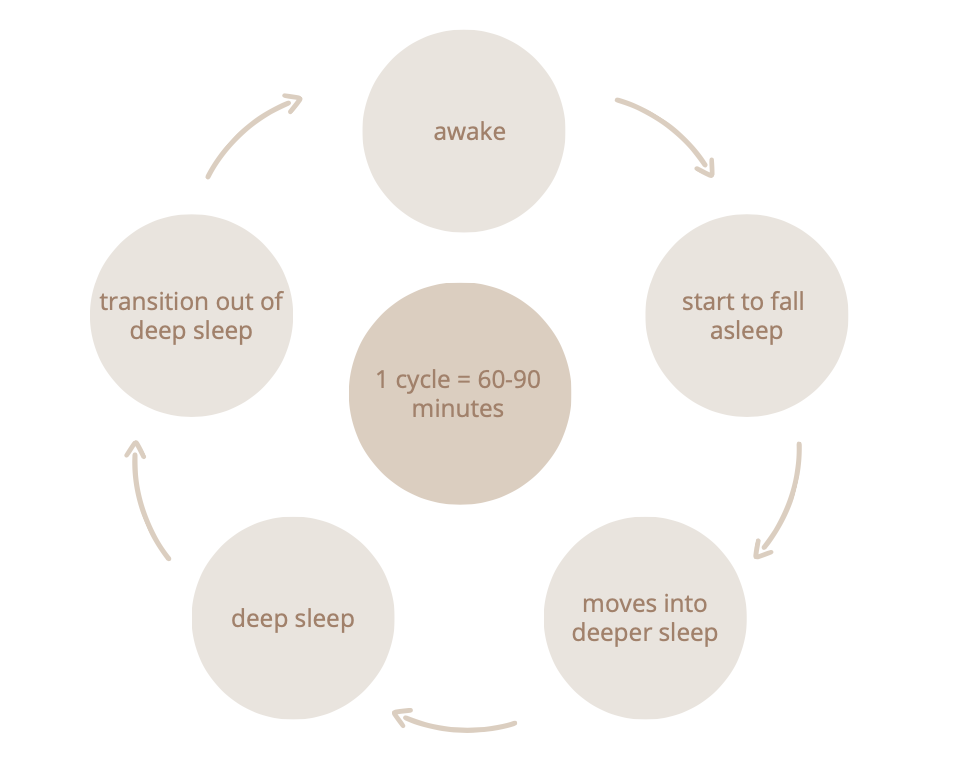

An Infant Sleep Cycle
OK, now back to babies (recall the tiny human you love beyond words). They have a much shorter sleep cycle than adults, lasting only 40-90 minutes. They also wake up between each sleep cycle. But, they aren’t very good at putting themselves back to sleep. Yet. Remember, it’s a learned skill. So, they WILL cry out for help every couple of hours, if not more often.
Once your child learns how to put themselves to sleep independently, they will be able to put themselves back to sleep during the night when they wake. It is only then that their stretches of sleep at night will get longer. Then, as their stomachs grow, their daytime feeds will get bigger. The number of night feeds will start to disappear. And finally, you will be on your way to a full night of peace and quiet!
Now I’m sure you are wondering “where do I start?” You start with laying your child down awake at night, instead of drowsy or asleep. Remember, falling asleep is a learned skill. It is a skill that they will not learn if we deny them the opportunity to practice. The sooner you start and the more practice they get, the easier it will be for everyone!









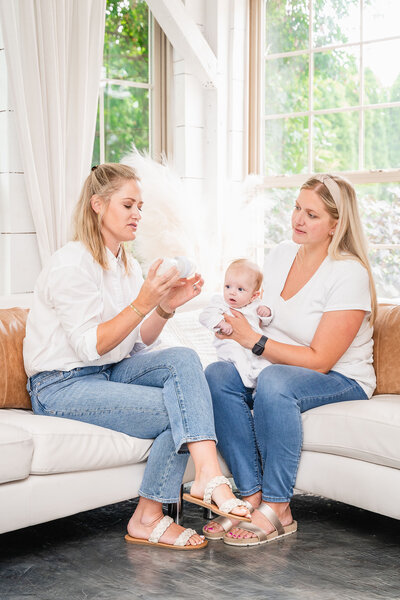
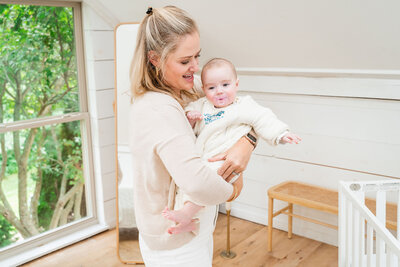


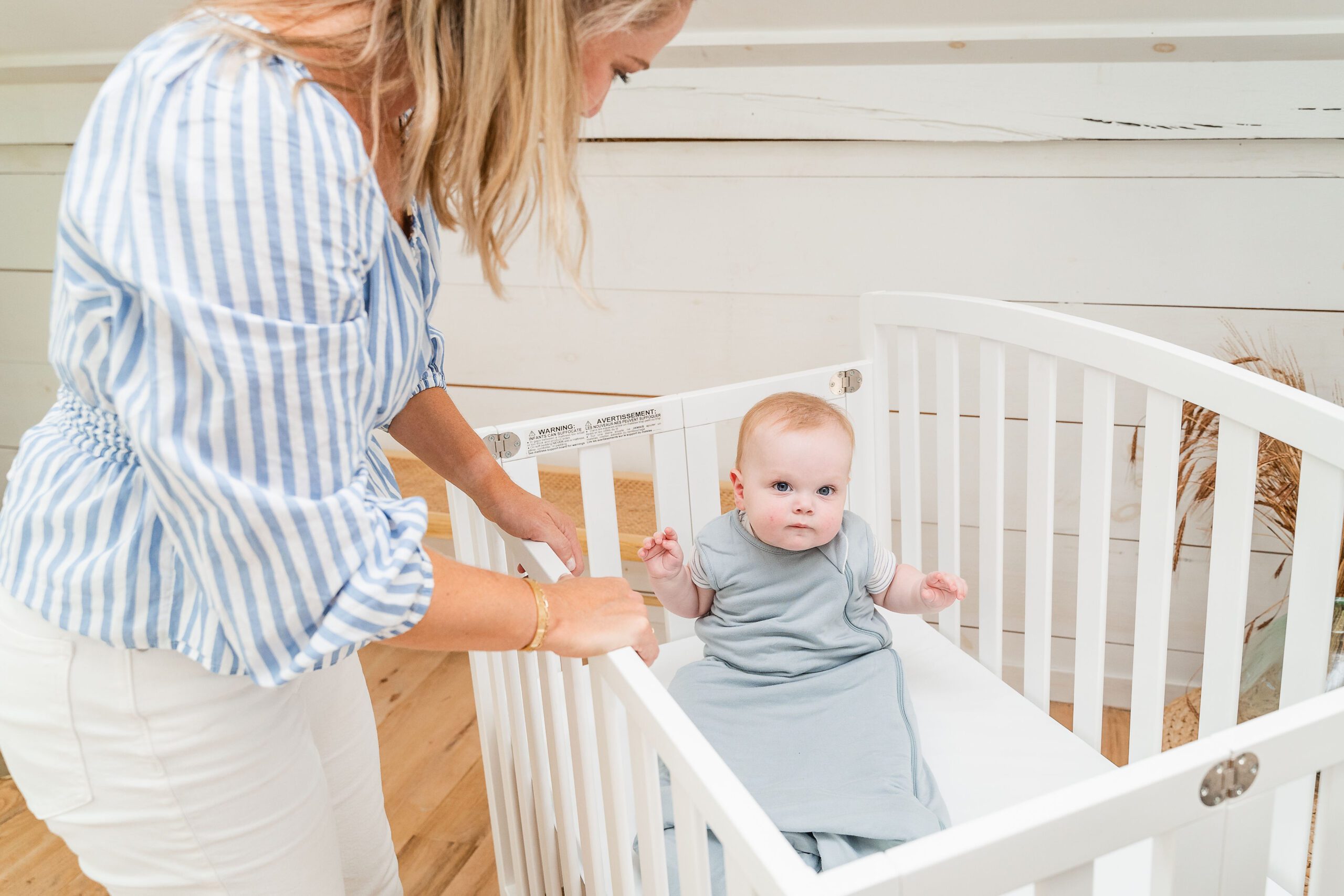







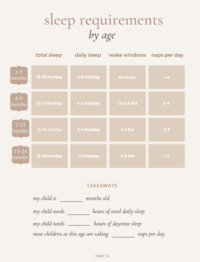

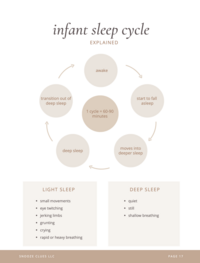



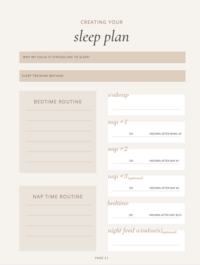

Read the Comments +